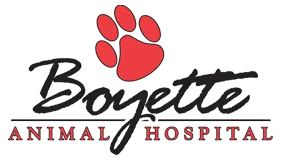Cancer Conditions and Interventions
By Damen Muller, DVM
Cancer is a common condition that affects all types of dogs, but certain purebred dogs have a predisposition for certain types of cancer. Examples include Shepherds predisposed to hemangiomas/hemangiosarcomas; Schnauzers predisposed to squamous cell carcinomas; and Boxers to mast cell tumors. Certain conditions predispose our pets to cancers such as obesity, reproductive status, viral infections, size of dog, and others.
A somewhat common misconception is that routine blood work will tell doctors if their pet has cancer. Blood work is a very necessary means for monitoring changes that can occur due to cancer - but rarely is it a means of diagnosing types of cancer or detecting the presence of it.
It is very important to inform your veterinarian of any changes you may notice on your pet such as lumps, bumps, patches, color changes, diet changes, unusual limping etc. Your veterinarian may offer certain tests such as fine needle aspirates (FNA), biopsy, ultrasound, radiographs, and advanced imaging such as a CT scan or MRI depending on the clinical presentation. This may ultimately lead to surgical, chemotherapeuitc, or radiation therapy intervention.
Many tumors are responsive to surgical intervention, however at times, combination therapy may be recommended. Tumors such as soft tissue sarcomas, osteosarcomas, mast cell tumors, and splenic tumors can typically and effectively be treated with surgery. Staging is very important to determine the best course of action and expectations with or without intervention. Following up with your veterinarian is imperative to a more successful outcome in most cases.
Important tips:
Size does matter! Monitor visible masses while they are small. Treatment, both surgically and medically, often become more difficult as the tumor size increases, and life expectancy may be affected.
If cancer is diagnosed, compliance is key. Treatment options will vary depending on the type and location of the disease, and some can unfortunately be costly, but working with your family veterinarian and veterinary oncologist will help ensure the best possible outcome.
